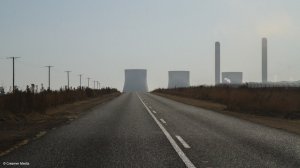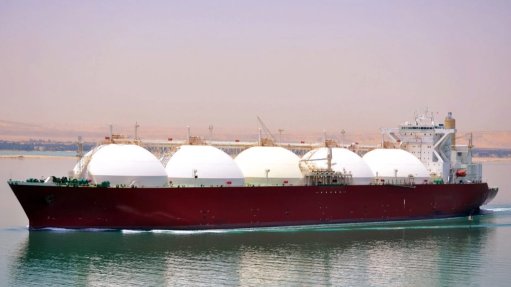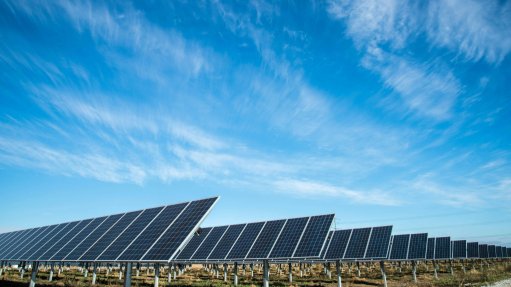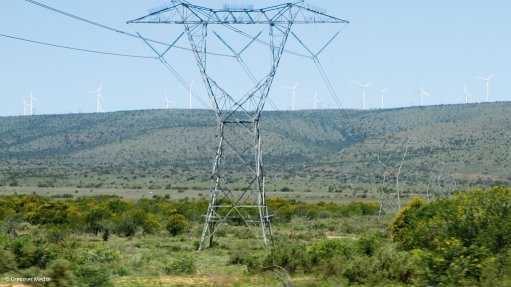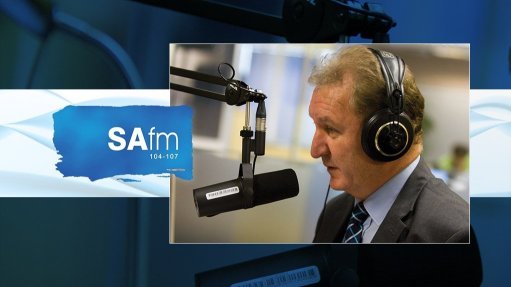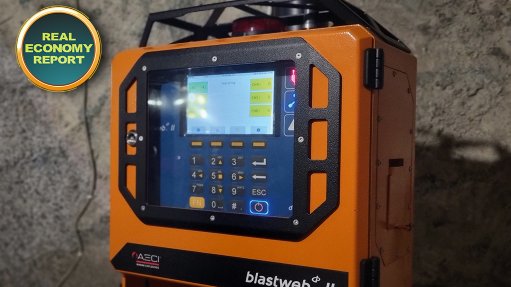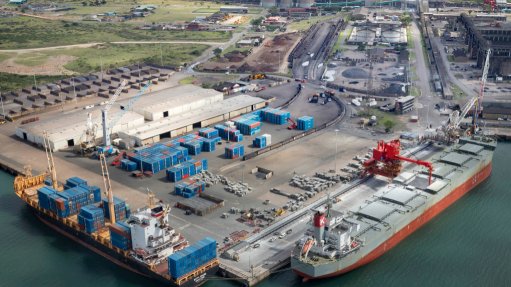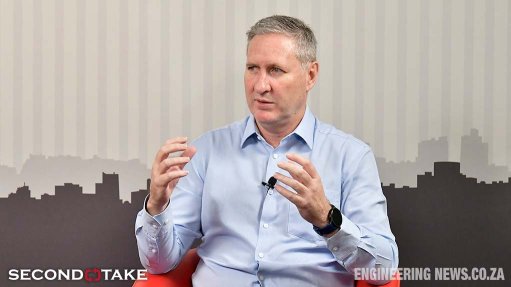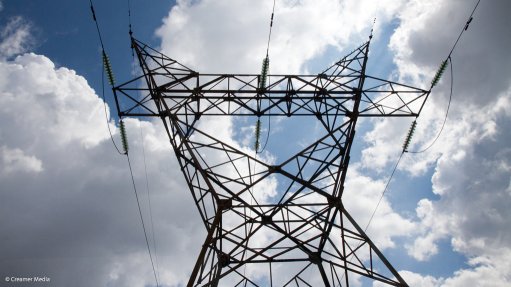Eskom mulls alternatives to R300bn emissions-compliance spend

Watch Eskom CEO Andre de Ruyter explaining the possible alternative solutions for meeting South Africa's minimum emission standards. Camera Work: Kutlwano Matala Editing: Nicholas Boyd.
Coal-heavy electricity utility Eskom has reiterated its commitment to complying with South Africa’s tightening minimum emission standards, but CEO Andre de Ruyter has also indicated that it is considering capital-light alternatives, as well as noncoal repowering solutions to meet its obligations, which could otherwise involve investments of some R300-billion.
In November, the Department of Environment, Forestry & Fisheries (DEFF) confirmed that the National Prosecuting Authority would proceed with the criminal prosecution of Eskom for violations of air pollution laws at its Kendal power station.
The utility appeared in court earlier this year, but was not asked to plead before the case was postponed to June.
Acting group executive for generation Phillip Dukashe said that continuous engagements were under way with DEFF, which was currently evaluating all of Eskom’s minimum emission standards applications.
Environment, Forestry and Fisheries Minister Barbara Creecy told Bloomberg in an interview this month that she expected Eskom to meet the country’s minimum air-quality standards.
“We are implementing retrofits and we are also determined not to operate outside of the requirements,” Dukashe said during a recent state of the system briefing.
Eskom had a backlog of compliance projects, however, which included a combination of installing electrostatic precipitators and high-frequency power supply units to increase particulate-emission collection efficiency, but Dukashe insisted that progress was being made to reduce particulate emissions.
“We are concerned about the NOx and the SOx (nitrogen oxides and sulphur oxides) and discussions are under way with the authorities to make sure that we can meet the requirement.
“We have asked for a postponement in meeting some of these requirements and in September we will be receiving an answer on those,” he said.
Kendal was currently operating within the limits after units 5 and 6 were taken offline for an upgrade to their emission-control systems.
The units would be returned to service in April and May respectively and Eskom was confident that it could prove compliance ahead of its June court appearance.
However, De Ruyter reported that ensuring ongoing compliance as standards were tightened would require an investment of R300-billion, without any increase in production.
“In the medium-term there are significant investments that we are required to make – first of all, as a consequence of our agreement with the World Bank for the financing of Medupi, for flue gas desulphurisation that is estimated to cost in the order of about R40-billion.
“However, there are also opportunities for us to investigate the other operational parameters that we can control in order to reduce the requirement for capital investment.”
At Tutuka, for instance, a project to install fabric filter plants had been abandoned in favour of a coal-quality and operations management solution that had enabled the plant to comply with its emission requirements in the absence of the initially planned investment.
“But, ultimately, what we need to do is optimise the net present value of every unit in the fleet, having regard to its remaining life . . . and the remaining life of our plant is relatively short.
“So, for us to make multibillion-rand investments on a plant that has three to four years left to run doesn’t make a huge amount of economic sense and it would certainly be counted as fruitless and wasteful expenditure.
“Therefore, we would need to consider whether we can be in a position to bring forward the retirement date of such a plant [and] consider it for repurposing and repowering and potentially take advantage of the fact that we can access green financing to bring new capacity on to the grid.”
Such green financing could arise by virtue of the fact that it was less expensive to decarbonise in South Africa than would be the case in other jurisdictions.
“Why would anybody want to pay South Africa to reduce its carbon footprint?
“First of all, climate change is obviously a global phenomenon, but secondly, our average cost to mitigate one ton of carbon is $7, [while] in Europe that cost is in excess of $400.
“So it pays the Europeans, because carbon knows no borders, to rather approach a country like South Africa, and we are not the only ones that can potentially benefit from this, and assist us to decarbonise our economy earlier than we planned.
“Now, if we are able to implement such a just energy transition, with the emphasis on ‘just’ – we also have to look after the interests of workers and investors in the coal value chain – then we will be able to avoid this R300-billion, or a significant proportion of that.”
Comments
Press Office
Announcements
What's On
Subscribe to improve your user experience...
Option 1 (equivalent of R125 a month):
Receive a weekly copy of Creamer Media's Engineering News & Mining Weekly magazine
(print copy for those in South Africa and e-magazine for those outside of South Africa)
Receive daily email newsletters
Access to full search results
Access archive of magazine back copies
Access to Projects in Progress
Access to ONE Research Report of your choice in PDF format
Option 2 (equivalent of R375 a month):
All benefits from Option 1
PLUS
Access to Creamer Media's Research Channel Africa for ALL Research Reports, in PDF format, on various industrial and mining sectors
including Electricity; Water; Energy Transition; Hydrogen; Roads, Rail and Ports; Coal; Gold; Platinum; Battery Metals; etc.
Already a subscriber?
Forgotten your password?
Receive weekly copy of Creamer Media's Engineering News & Mining Weekly magazine (print copy for those in South Africa and e-magazine for those outside of South Africa)
➕
Recieve daily email newsletters
➕
Access to full search results
➕
Access archive of magazine back copies
➕
Access to Projects in Progress
➕
Access to ONE Research Report of your choice in PDF format
RESEARCH CHANNEL AFRICA
R4500 (equivalent of R375 a month)
SUBSCRIBEAll benefits from Option 1
➕
Access to Creamer Media's Research Channel Africa for ALL Research Reports on various industrial and mining sectors, in PDF format, including on:
Electricity
➕
Water
➕
Energy Transition
➕
Hydrogen
➕
Roads, Rail and Ports
➕
Coal
➕
Gold
➕
Platinum
➕
Battery Metals
➕
etc.
Receive all benefits from Option 1 or Option 2 delivered to numerous people at your company
➕
Multiple User names and Passwords for simultaneous log-ins
➕
Intranet integration access to all in your organisation


